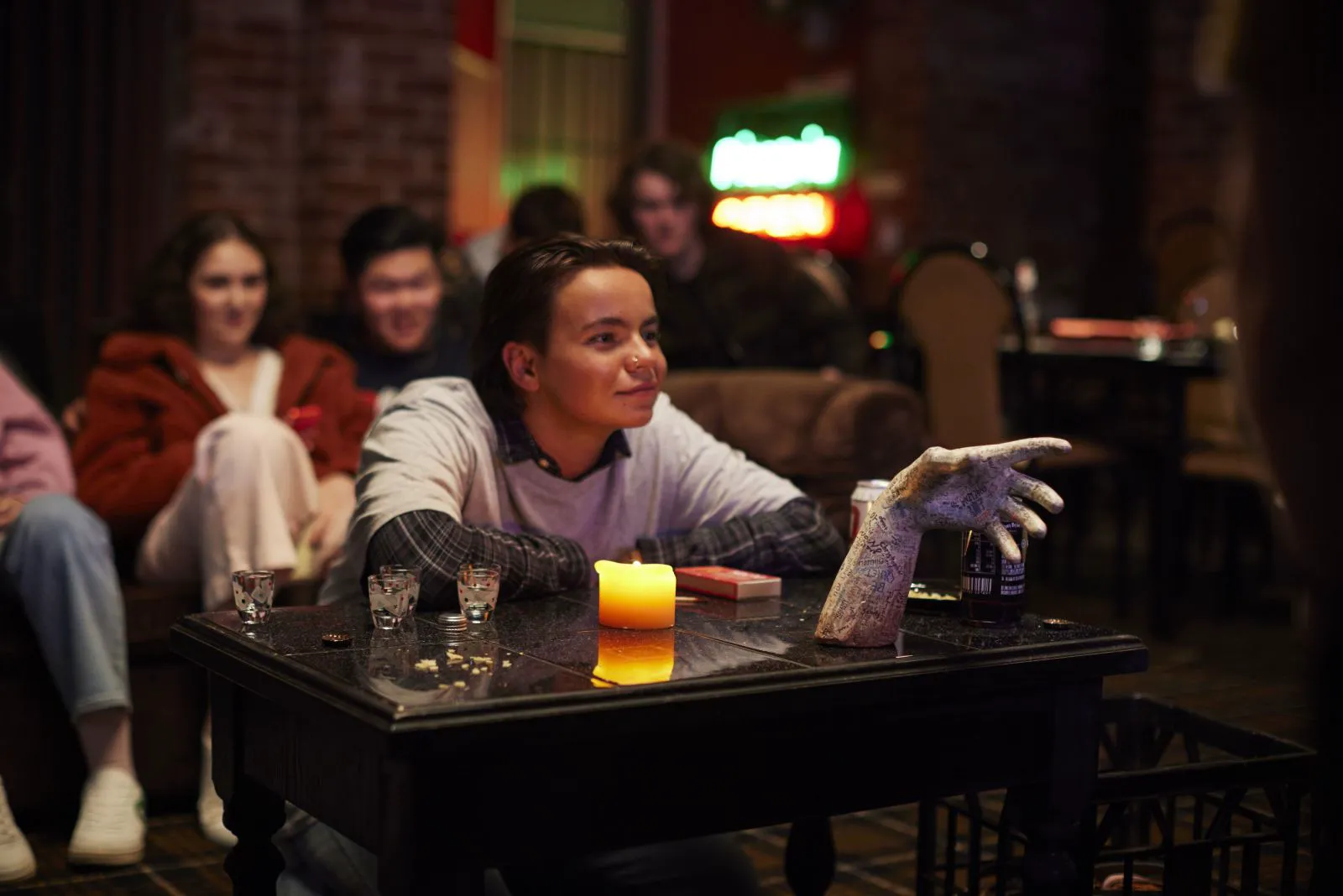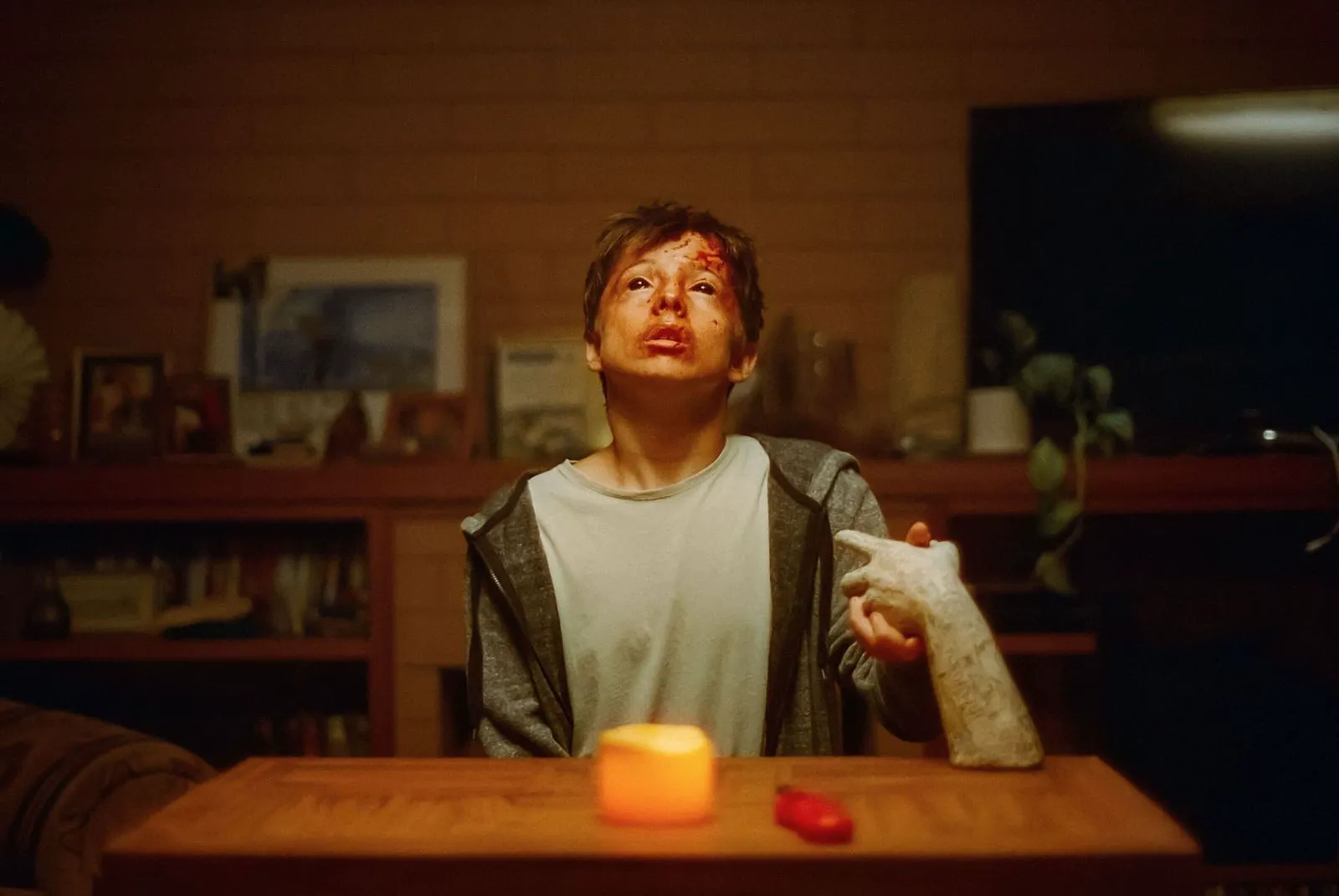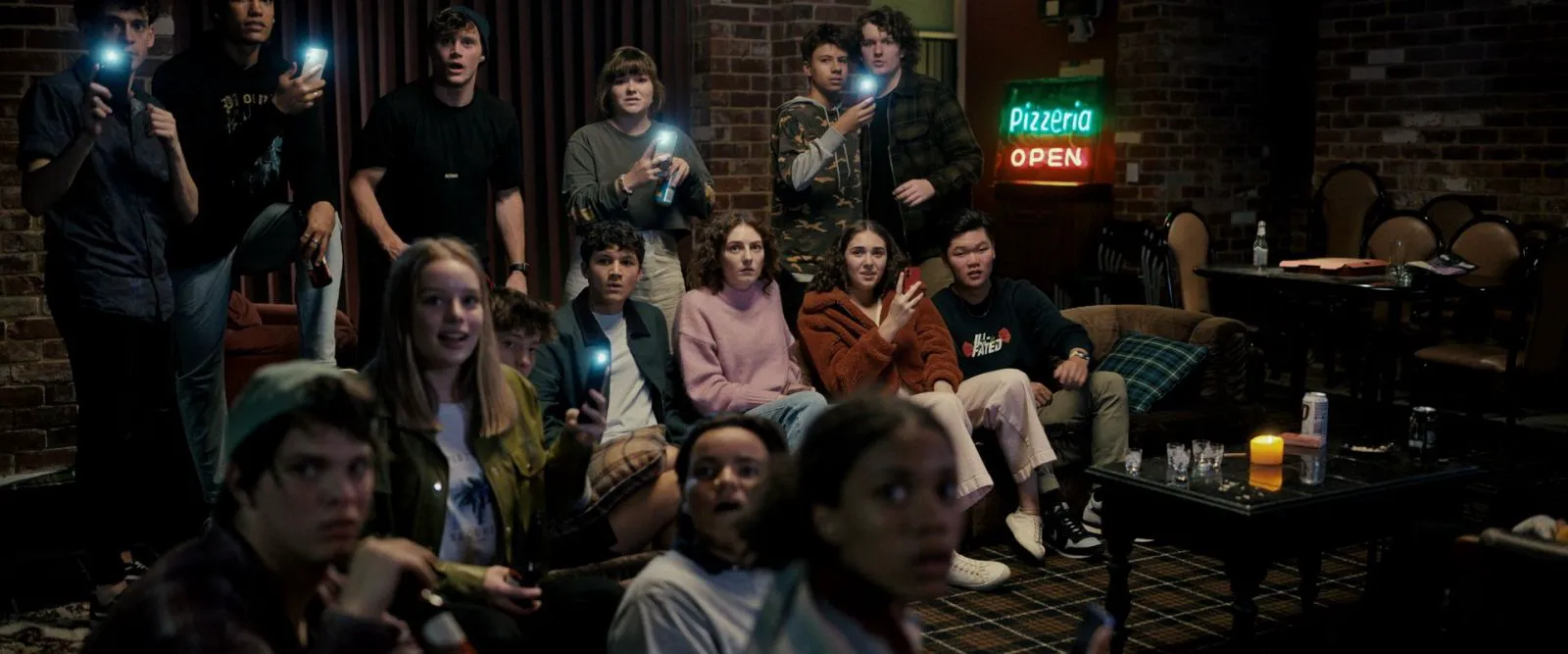A Descent into Darkness: Unpacking the Horror of “Talk to Me”
Mia’s life, portrayed by Sophie Wilde, is a tapestry woven with threads of grief and isolation. The recent loss of her mother has left her grappling with fragile mental health, compounded by the alienation she feels from her peers and the sting of a former relationship now entwined with a close friend. In this turbulent landscape, Jade (Alexandra Jensen) and her younger brother Riley (Joe Bird) offer a semblance of connection, though even they struggle with the weight of Mia’s pain. Seeking solace or perhaps a distraction, Mia convinces Jade to attend a house party, where a group of friends dabble in the occult using an ancient, mystical hand. They allow spirits to enter their bodies, filming the unsettling encounters and sharing them online. Are they genuinely flirting with the supernatural, or is it all just a game? Driven by a desire to impress, Mia plunges into the experience, enduring a harrowing journey through the depths of the unknown, and surprisingly, finds herself captivated. The group becomes increasingly engrossed in communicating with the dead, until a crucial rule is broken: the 90-second time limit. A spirit lingers, blurring the line between the living and the dead, and unleashing a terrifying chain of events.

Zoe Terakes as Hayley in “Talk to Me”
The Indie Horror Success Story
It seems many groundbreaking horror films follow a similar trajectory: initially dismissed by studio executives, they later become unexpected sensations. “Barbarian,” for instance, faced years of rejection before securing funding and achieving box office success. The story behind “Talk to Me” is even more compelling. Frustrated with waiting for opportunities, brothers Danny and Michael Philippou took matters into their own hands, independently producing the film and subsequently selling it to A24. In industry terms, this is a knockout victory.

Joe Bird as Riley in “Talk to Me”
Mental Health and Modern Horror
The rejected script isn’t the only trend in new-wave horror; now, almost every genre film focuses on mental health (“Smile,” “Resurrection,” and the list goes on). There’s nothing wrong with drawing attention to the issue, although, in the case of “Talk to Me,” the constant rehashing of trauma feels a bit tiresome. Mia mourns her mother, who either died by accident or intentionally took her own life. By flirting with the other world, the heroine establishes contact with her and clings to this connection until the very end. The too-obvious symbolism in the form of a downed kangaroo (the film is still Australian), whose suffering Mia flatly refused to stop in the opening scene, will work as that gun on the wall. “Talk to Me” would have been fine without such excesses, which slightly overload the plot. The public is still hungry for good old-fashioned meat grinders without philosophical preludes, although the Philippou’s superpower is that the film would have worked in both cases.

Alexandra Jensen as Jade in “Talk to Me”
A Zillenial Nightmare
“Talk to Me” is unapologetically Gen Z, in the best possible way. These aren’t kids who cower from ghosts or seek out a horror icon in a morgue basement for ancient curses. Like any normal people in 2023, the characters post videos on TikTok, stare into the eyes of the dead, and venture into the other world out of curiosity, or maybe even boredom. When the situation spirals out of control, what follows is arguably the most terrifying on-screen spectacle since Austin Butler’s performance as Elvis Presley last year. The Philippou brothers avoid cheap jump scares, instead gradually normalizing the unsettling atmosphere to a comfortable temperature, only to then grab the viewer’s nerves with their bare hands and knock everything alive out of them. Never before have demons sucking toes and the Crazy Frog melody been so creepy. Consider this film an appeal to the lawsuit that horror films have ceased to be scary.